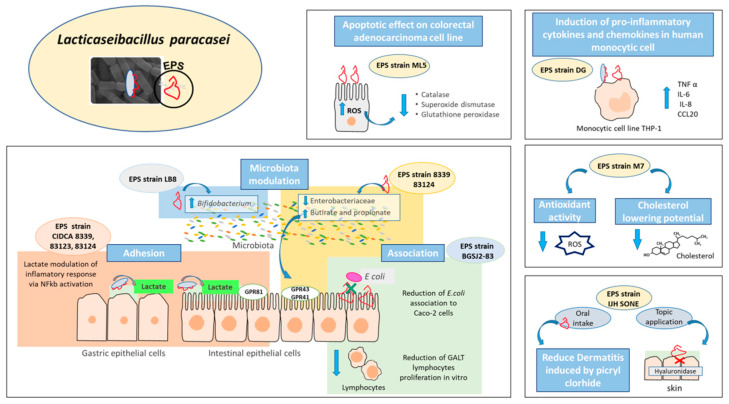Figure 2.
Beneficial effects and mechanisms ascribed to EPS isolated from L. paracasei strains. At the gastrointestinal level, EPS produced by the BGSJ2-83 strain reduced the association of E. coli to Caco-2 cells and reduced GALT lymphocyte proliferation in vitro. EPS from the LB8 strain modulated the microbiota composition due to a bifidogenic effect; meanwhile, EPS from CIDCA 8339 and CIDCA 83124 strains reduced Enterobacteriaceae. In addition, EPS isolated from CIDCA 8339 and 83124 produced a change in the concentration of short chain fatty acids by increasing the butyrate and propionate levels. EPS is involved in the bacteria association to epithelial cells where the in situ production of lactate modulated the inflammatory response via NFkb activation. Additionally, EPS from MLS strain exerted an apoptotic effect on the human colorectal adenocarcinoma cell line HT-29. The oral intake of EPS produced by IJH-SONE reduced dermatitis induced by picryl-clorhide, and the topical application of EPS reduced the inflammation in mice. EPS produced by the DG strain induced pro-inflammatory cytokines and chemokines in the human monocytic cell line THP-1. EPS isolated from M7 strain presented anti-inflammatory activity and reduced cholesterol levels. ROS: reactive oxygen species.

